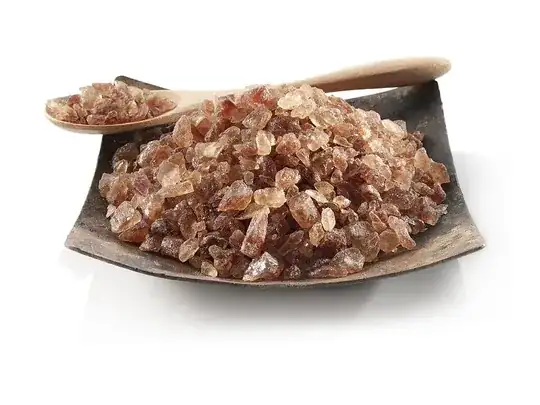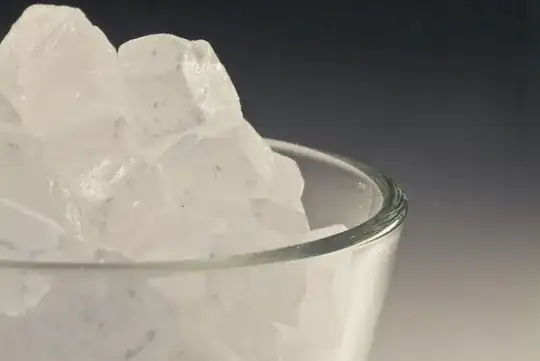Other answers have mentioned the possibility of different colors of rock sugar, but just to be clear, the question is asking about this brown type of sugar from Teavana:

There is also clear ("white") rock sugar (sometimes also known as rock candy or crystal sugar), such as this:

As one other answer mentioned, rock sugar is often manufactured from beet sugar, though this has to do more to do with European sources and traditions than any actual manufacturing requirement.
Regarding flavor, I find Teavana's description to be misleading: "These pure, unprocessed sugar crystals are the best way to enhance the natural sweetness of your tea without changing the flavor." As others have noted, the brown version of rock sugar generally has molasses or slight caramel notes, so it is actually more likely to flavor your tea than more processed sugar.
If anything, in the past I've heard such claims of little flavor alteration associated with white rock sugar. There is an argument to be made that larger irregular crystals allowed to grow slowly for white rock sugar could have fewer impurities than smaller crystals in normal granulated sugar with a lot more surface area to collect unwanted stuff during drying and processing. (To know for sure, you'd need to know a lot about the processing at the particular manufacturing plant.) Also, larger crystals with less surface area will be less susceptible to absorbing "off" flavors from humidity, making large-crystal sugar more shelf-stable and less likely to taste "stale" when stored in less optimal conditions.
My guess is that Teavana appropriated the marketing hype for the "purity" of large-crystal white sugar (which might actually be more pure and have fewer unwanted tastes) and combined it with the marketing hype for "natural" raw sugar that doesn't wash away the molasses and other flavors/colorants during processing. But the two are not the same thing at all.
In any case, rock sugar should provide the same amount of sweetness by weight as normal granulated sugar. Other than longer dissolving time, the only difference may be slightly more non-sucrose flavors for the brown types of rock sugar and slightly less for white rock sugar.

